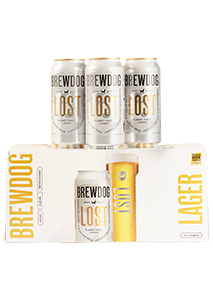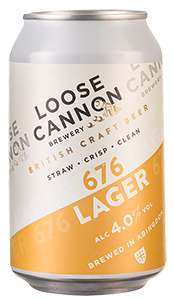- Home
- beer
Filter by
- £35.40 per case
- £2.25 per bottle
- £1.80 per can
- £2.49 per can
- £10.99 per bottleSAVE £1.00
- £11.99 per bottleSAVE £1.00
- £0.00 per bottle
- Showing (1 to 7 of 7)
1
Page 1 of 1
Wine FAQs
What is beer?
Beer is one of the oldest and most widely drunk alcoholic beverages in the world, with its origins tracing back to ancient civilisations. In its simplest form, beer is any drink made through the fermentation of grain (like wine is made through the fermentation of fruit).
The basic ingredients of beer are deceptively simple – malted grains, hops, water and yeast. Yet there are a vast range of beer styles available thanks to decisions made in the brewing process. From light and bubbly lagers to robust and dark stouts, beer’s versatility is impressive.
What is the history of beer making?
Beer has a rich history dating back to ancient civilisations of 5,000 BC (such as the Sumerians, Babylonians, Egyptians and Chinese), where it was a dietary staple and featured in religious ceremonies. The art of brewing was refined in the European monasteries of the Middle Ages, introducing hops for preservation and flavour.
Significant advancements during the Industrial Revolution (including bottling, refrigeration and pasteurisation), allowed beer to travel and be stored longer.
Recent years have seen the rise of the craft beer movement. Originating in the US, so-called craft breweries have been revitalising interest in traditional beer styles that emphasise quality, flavour and brewing technique.
The enduring and universal appeal of beer is a testament to its varied flavours and styles.
How is beer made?
Beer is made from malted grains, hops, water and yeast. Making beer involves several key steps – malting, mashing, boiling, fermenting, conditioning and packaging.
- Firstly, grains – typically barley – are malted through germination and roasting, influencing the beer’s flavour and colour.
- During mashing, the malted grains are mixed with hot water to extract fermentable sugars, producing a sweet liquid called wort.
- The wort is then boiled with hops for bitterness, flavour and preservation.
- After boiling, yeast is added and the liquid ferments, converting sugars into alcohol and carbon dioxide.
- The beer is allowed to mature and develop flavours, before being filtered and packaged in bottles, cans or kegs for distribution.
What types of beer are available?
There are seven main types of beer:
- Ale – A top-fermented beer with a wide range of flavours, from fruity to malty.
- Lager – A bottom-fermented beer, typically lighter and crisper, and known for its clean and clear finish.
- Pilsner – A type of lager with a golden hue, characterised by its sharp hop bitterness and refreshing crispness.
- Stout – A dark, rich beer with prominent roasted malt flavours, often accompanied by coffee, chocolate or caramel notes.
- Porter – Dark in colour and balances sweet and roasted malt flavours.
- Wheat beer – Light and airy, often with hints of banana or clove.
- IPA (India Pale Ale) – A hop-forward style that typically features a pronounced bitterness alongside intense citrus, floral or piney flavours.
What does beer taste like?
The taste of beer can vary widely depending on its style, ingredients, brewing process and other factors. Some general taste characteristics include:
- Bitterness – Hops bring bitterness to balance the malt’s sweetness. Bitterness can range from mild in light lagers to intensely bitter in some India Pale Ales (IPAs).
- Sweetness – Malted grains, usually barley, provide sugars that yeast ferments into alcohol. The residual sugars give beer its sweetness, with some beers tasting malty and sweet while others are dry with very little sweetness.
- ruitiness – Many beers have fruity notes, ranging from citrus and berry flavours in some ales to dark fruit flavours such as plum and raisin in darker beers and stouts.
- Spiciness – Some beers, particularly Belgian styles, can have a spicy character with clove, pepper or coriander flavours.
- Roastiness – Darker beers such as stouts and porters often have roasted malt, which imparts flavours of coffee, chocolate, and sometimes smokiness.
- Sourness – Sour beers are intentionally brewed to taste tart or sour – from lightly tangy to mouth-puckeringly sour.
- Body – The body of a beer, or its mouthfeel, can be light, medium, or full, affecting the overall taste experience.
- Alcohol – The alcohol content of beer can influence its taste, adding warmth and flavour. It can range from around 3% alcohol by volume (ABV) in light beers to over 10% ABV in some strong ales and stouts.
- Carbonation – The level of carbonation can also affect how beer tastes. Depending on the style, it can be sparkling, effervescent or nearly still.
- Additional flavours – Fuelled by the craft beer movement, brewers have been experimenting with a wide array of additional ingredients such as fruits, herbs, spices, coffee, chocolate and more, further expanding beer’s flavours.
Is beer vegan?
Some beer can be vegan, depending on the ingredients and how it is made. Most basic recipes, which include water, malted barley, hops and yeast, contain no animal products. However, some beers use animal-derived products to clarify their beer and make it less hazy. This can include isinglass (derived from the swim bladders of fish), gelatin (from animal collagen), casein (a milk protein), and albumin (derived from eggs).
Occasionally, beers are brewed with non-vegan ingredients for flavour, colour, or other properties. Examples include:
- Honey
- Lactose (a sugar derived from milk, often used in milk stouts)
- Oysters in some speciality stouts
To be confident that your drink is vegan-friendly:
- Check the label, as some beers will state that they are vegan.
- Consult the brewery’s website or contact them directly
- Use online databases or apps that catalogue vegan and non-vegan drinks.
Is beer gluten-free?
Beer, in its traditional form, is not gluten-free. This is because it’s made from malted barley or wheat. However, there are exceptions and alternatives available for those seeking gluten-free options.
- Gluten-free beers are made from grains such as sorghum, rice, millet, buckwheat or corn. They do not contain any wheat, barley or rye.
- Gluten-removed or gluten-reduced beers are made from traditional brewing grains, including barley, but have undergone a process to break down or remove gluten to a certain extent.











